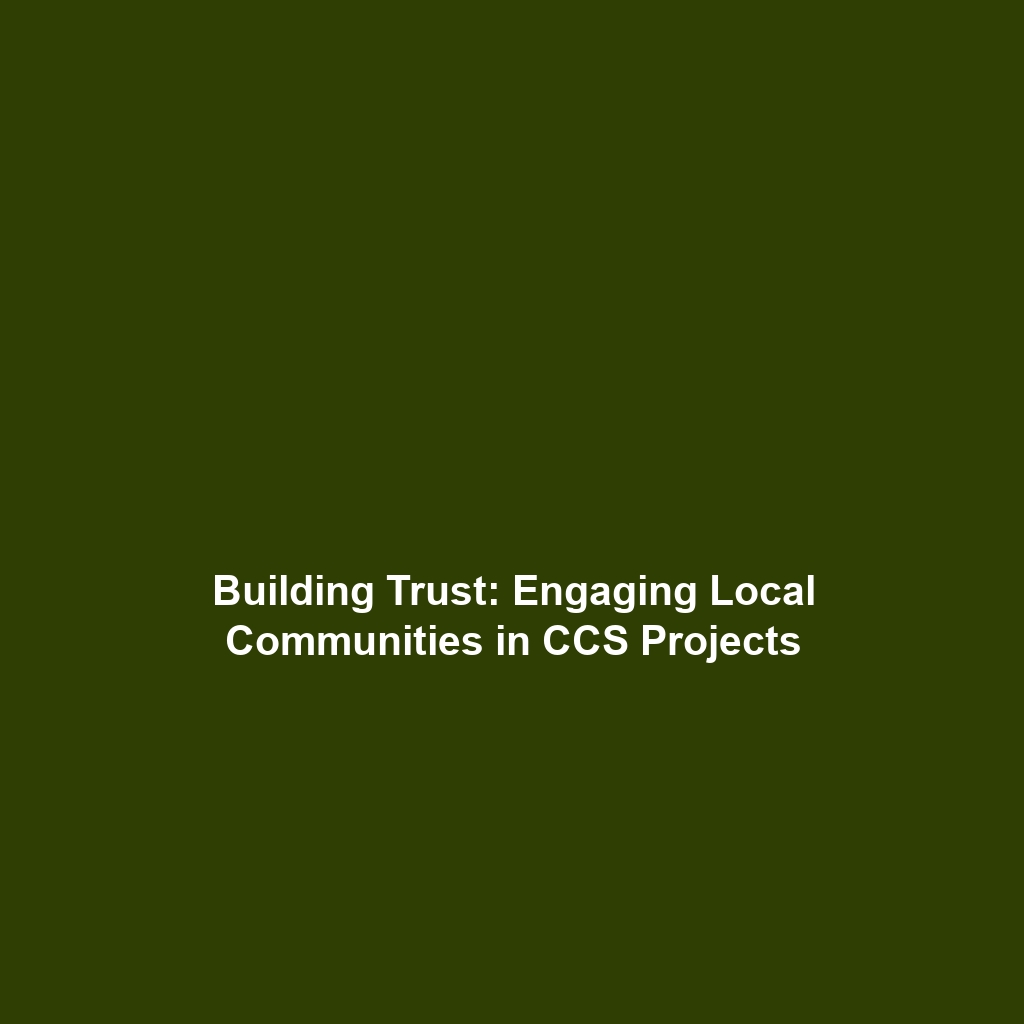Involving Local Communities in the Planning and Decision-Making Processes of CCS Projects
Introduction
Involving local communities in the planning and decision-making processes of Carbon Capture & Storage (CCS) projects is essential for fostering public trust. As CCS emerges as a pivotal strategy in mitigating climate change, the integration of community perspectives becomes increasingly significant. By ensuring that local voices are heard, we can bolster the legitimacy of CCS initiatives and encourage wider acceptance of these technologies. Public trust not only enhances the success of these projects but also accelerates the transition to sustainable energy systems.
Key Concepts
Several pivotal concepts underscore the importance of community involvement in CCS projects:
- Stakeholder Engagement: Engaging local stakeholders, including residents, businesses, and local governments, ensures diverse perspectives and fosters collaboration.
- Transparency: Maintaining clear communication about project goals, risks, and benefits helps demystify CCS technology and builds confidence among community members.
- Community Benefits: Highlighting the socio-economic advantages of CCS, such as job creation and investment in local infrastructure, can sway public sentiment positively.
Applications and Real-World Uses
Understanding how community involvement enhances CCS projects is crucial. Here are some significant real-world applications:
- Community-Based Decision Making: Projects in Norway have demonstrated how local community feedback can shape the implementation of CCS technologies, ensuring they meet community needs and expectations.
- Education and Awareness Programs: Initiatives in Canada emphasize educating local populations about CCS, enhancing transparency and involvement.
These examples illustrate how involving local communities in decision-making improves project acceptance and success rates in Carbon Capture & Storage (CCS).
Current Challenges
Despite the benefits, several challenges persist in involving local communities in CCS planning:
- Information Gaps: Misinformation or lack of knowledge can lead to skepticism and resistance.
- Resource Limitations: Many communities lack the necessary resources to engage effectively with CCS project developers.
- Political Dynamics: Local politics can complicate engagement efforts, with some community members feeling marginalized.
Future Research and Innovations
Future innovations focusing on community engagement in CCS planning may include:
- Digital Engagement Platforms: Leveraging technology to facilitate community input and feedback on CCS projects.
- Collaborative Workshops: Implementing interactive workshops that involve community members, facilitating discussion and learning.
- Enhanced Policy Frameworks: Developing policies that mandate community involvement in the CCS project lifecycle.
Conclusion
Involving local communities in the planning and decision-making processes of CCS projects is crucial for gaining public trust. By fostering stakeholder engagement and transparency, the success of these initiatives is greatly improved. As CCS technologies evolve, ongoing research and innovations must prioritize community involvement to ensure widespread acceptance and effectiveness. For further reading on CCS and community engagement strategies, visit our other relevant articles on link to article 1 and link to article 2.

Leave a Reply